Ragdoll Health Issues: Common Conditions and How to Treat Them
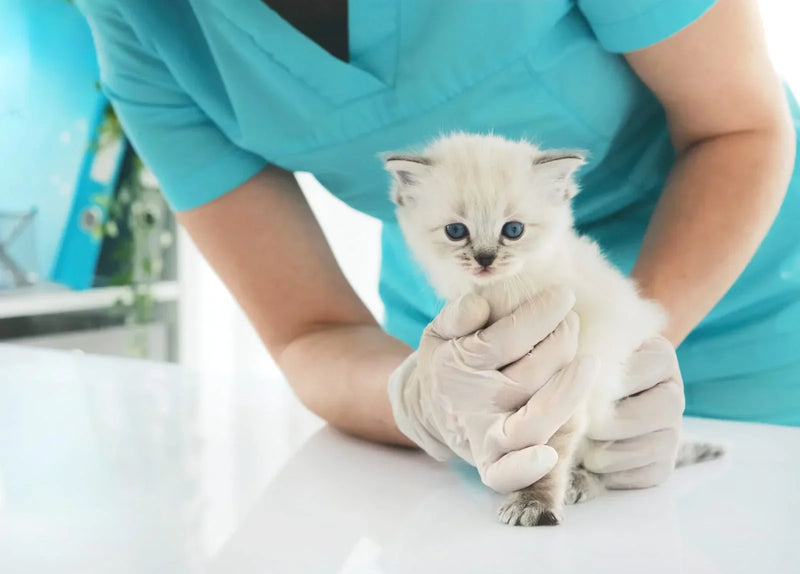
Ragdoll cats, like any other breed, can be prone to certain health issues. While not every cat will experience these health problems, it’s important for cat owners to be aware of potential Ragdoll cat health issues and take steps to prevent or manage them. Ragdolls are known for their sweet, affectionate nature, their striking blue eyes, and their soft, luxurious coats, but just like any pet, they need proper care to stay healthy.
In this article, we’ll dive into the health issues with Ragdoll cats, including some of the most common conditions they may face, and provide practical tips on how to prevent or treat them. Taking these steps will ensure that your kitten or adult cat stays happy, healthy, and by your side for many years to come.
Common Ragdoll Cat Health Issues You Should Know About
Ragdoll cats are wonderful, loving companions that typically enjoy good health throughout their lives. However, like any purebred cat, they can be prone to certain genetic Ragdoll health issues. Don't let this scare you away from the breed—being aware of these potential problems simply helps you provide the best care possible and catch any issues early.
Hypertrophic Cardiomyopathy (HCM): A Serious Health Problem of Ragdoll Cats
HCM is probably the most serious heart condition that can affect Ragdolls, and unfortunately, it's something many cat parents worry about. This condition causes the heart muscle walls to thicken abnormally, making it harder for the heart to pump blood effectively. The tricky thing about HCM is that it's genetic—passed down from parent cats—so even the most well-cared-for Ragdoll can develop it.
Prevention and monitoring steps include:
-
Asking breeders about heart health screening of parent cats
-
Regular vet checkups with heart examinations
-
Periodic echocardiograms, especially as your cat ages
While there's no cure for HCM, cats with this condition can still live comfortable lives with proper medication and monitoring. Some cats with mild HCM never even show symptoms, while others might need heart medications to help their hearts function better. Early detection is key to managing this condition successfully.
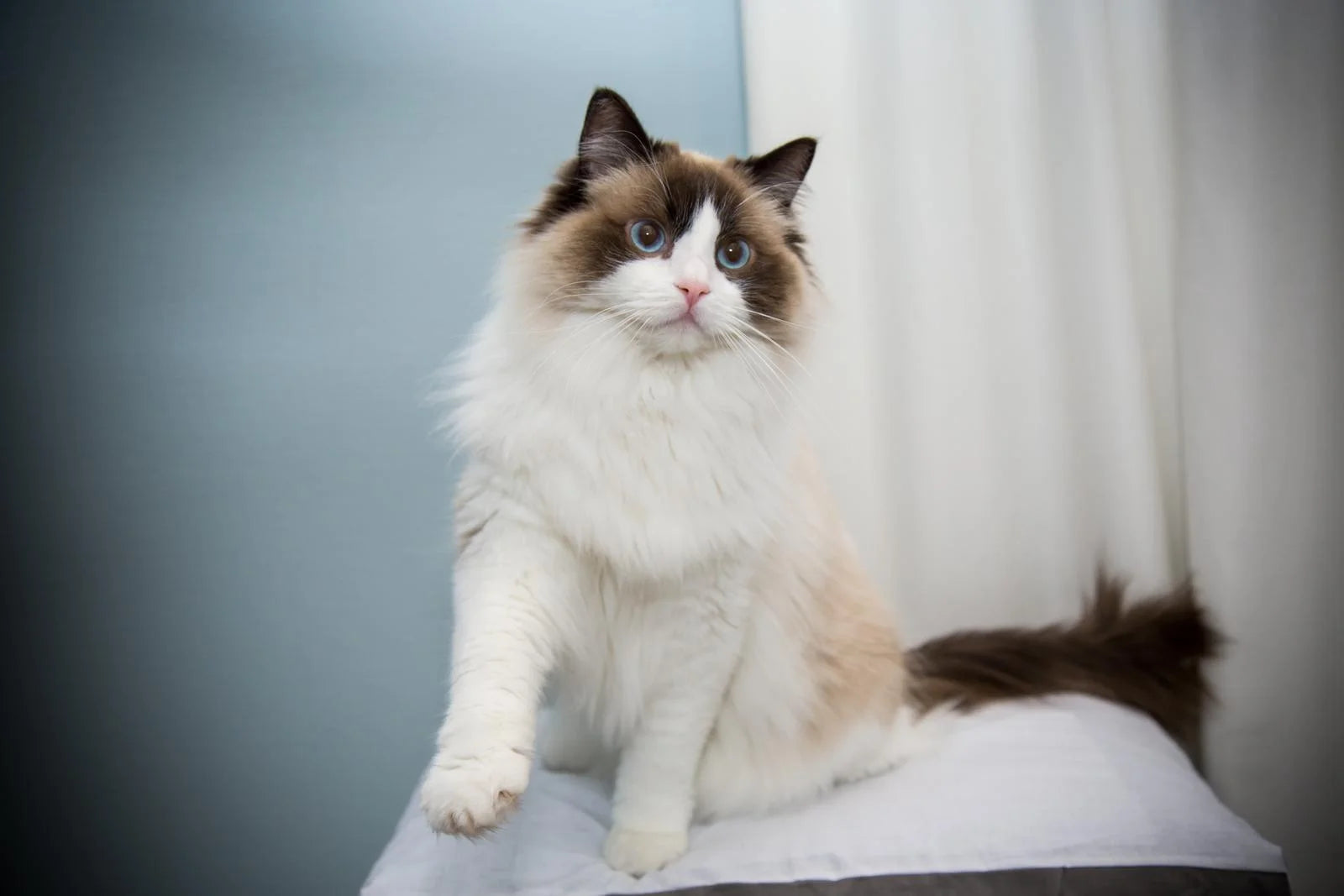
Polycystic Kidney Disease (PKD) Issues With Ragdoll Cats
PKD is another genetic condition that Ragdoll owners should know about, though it's become much less common thanks to genetic testing. This disease causes small, fluid-filled cysts to form in the kidneys over time, potentially leading to kidney disease later in life. The cysts gradually grow and can eventually interfere with normal kidney function.
The silver lining is that PKD is completely preventable through responsible breeding. A simple genetic test can tell breeders whether their cats carry the PKD gene, and ethical breeders won't breed cats that test positive. This is why working with reputable breeders who do genetic testing is so important. Even if your cat does have PKD, many cats live normal lives with regular monitoring and supportive care, including periodic blood work and possibly special diets.
Bladder Stones: A Common Ragdoll Health Problem
Bladder stones are mineral crystals that form in your cat's urinary tract, and Ragdolls seem to be a bit more prone to developing these than some other breeds. These formations can be uncomfortable and potentially serious if left untreated, but they're quite manageable when caught early.
Watch for these warning signs:
-
Straining to urinate or frequent litter box trips
-
Blood in the urine or small amounts of urine produced
-
Crying out or showing discomfort when urinating
The good news is that many bladder stones can be dissolved with a special prescription diet—no surgery required! Your vet might recommend a specific therapeutic food that helps break down existing stones and prevent new ones from forming. In more severe cases, stones might need to be removed surgically, but this is usually straightforward. Don't hesitate to call your vet if you notice any changes in your cat's bathroom habits.
Gastrointestinal Issues in Ragdolls
Some Ragdolls can have sensitive stomachs, developing conditions like irritable bowel syndrome (IBS) or inflammatory bowel disease (IBD). These digestive issues can be frustrating because symptoms often come and go, making it hard to pinpoint exactly what's wrong. Your cat might seem fine one day and then have stomach upset the next, sometimes triggered by stress, diet changes, or sensitivity to certain ingredients.
Most gastrointestinal issues in Ragdolls can be managed really well once you figure out what works for your cat. Your vet might recommend a special diet (like limited ingredient or hypoallergenic food), probiotics to support gut health, or sometimes medication during flare-ups. Many Ragdoll parents find that keeping their cat on a consistent, high-quality diet and minimizing stress helps prevent digestive upset significantly.
Obesity: A Growing Ragdoll Health Issue
Let's be honest—Ragdolls love their food, and their laid-back personality doesn't exactly make them natural athletes! This combination can, unfortunately, lead to weight gain if we're not careful.
Ragdolls are also naturally large cats, which can sometimes make it harder to tell when they're carrying extra weight. Obesity isn't just a cosmetic issue—it can lead to serious health problems like diabetes, joint issues, and heart problems, plus it affects their overall energy and quality of life.
Effective weight management strategies:
-
Measure out food portions rather than free-feeding
-
Choose a high-quality diet appropriate for their age and activity level
-
Provide 10-15 minutes of daily interactive playtime with toys
The challenge with Ragdolls is that they're such calm, docile cats that they might not naturally get as much exercise as more active breeds. However, the solution is pretty straightforward with some commitment from you as the owner.
Many Ragdoll owners are surprised by how playful their cats can be once they get them moving! You can read more about training techniques that work well for Ragdoll cats here.
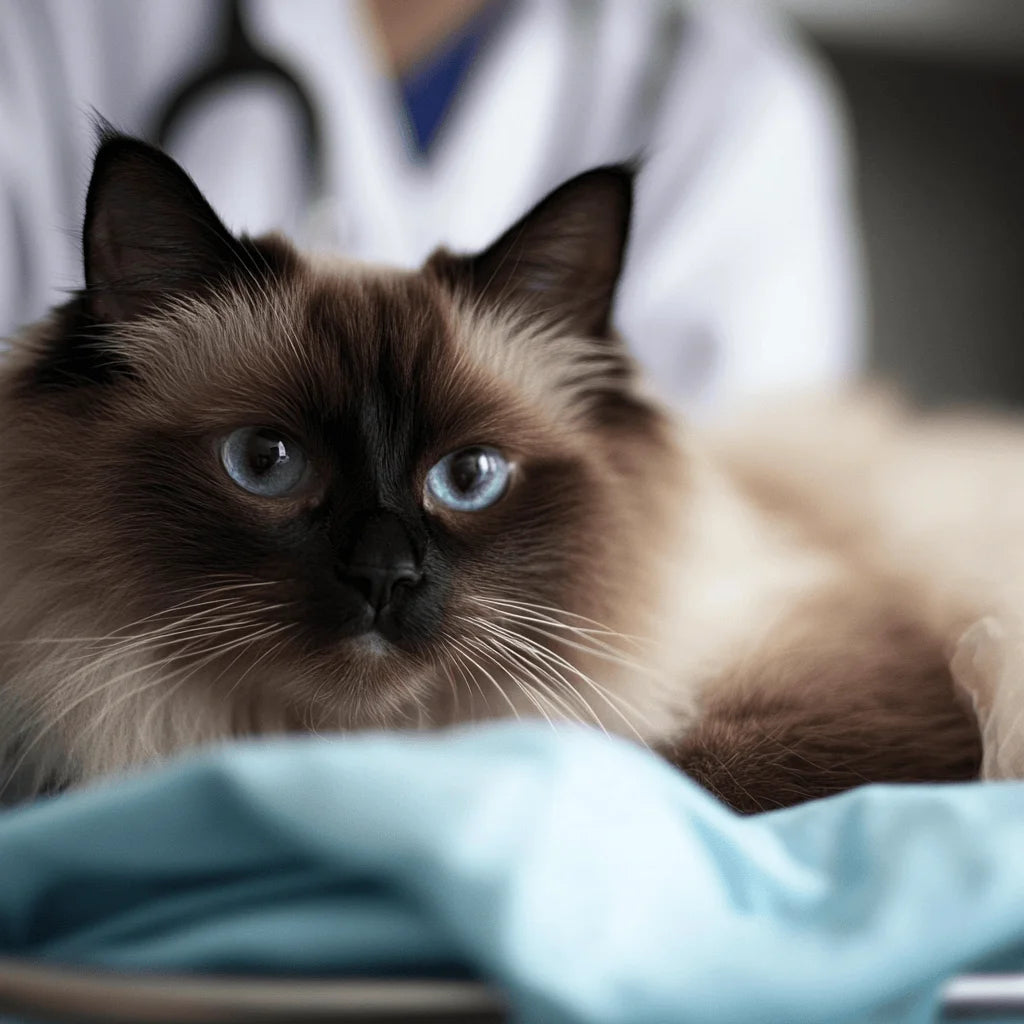
Prevention and Wellness: Keeping Your Ragdoll Cat Healthy
Prevention and early detection are absolutely crucial when it comes to managing health problems of Ragdoll cats. The good news is that many health problems can be prevented or caught early with proper care and attention. By staying proactive about your cat's health, you're giving them the best chance at a long, happy life.
Here are some essential tips to promote your Ragdoll's overall well-being:
-
Regular veterinary check-ups: Schedule routine visits at least once a year for comprehensive examinations, vaccinations, and health screenings. For senior Ragdolls (7+ years), consider twice-yearly visits since age-related health issues can develop more quickly. These visits help catch potential problems early.
-
Vaccinations: Follow a recommended vaccination schedule to protect your Ragdoll against common feline diseases like rabies, FVRCP, and potentially FELV, depending on your cat's lifestyle. Your vet will customize a plan based on whether your Ragdoll goes outdoors or stays strictly indoors.
-
Parasite control: Use appropriate preventive measures to control fleas, ticks, and internal parasites. Even indoor Ragdolls can be exposed to parasites through open windows, on your clothing, or from other pets. Regular fecal exams and year-round prevention are typically recommended.
-
Dental care: Implement regular tooth brushing (ideally daily, but even a few times a week helps) and consider professional dental cleanings as recommended by your veterinarian. Ragdolls can be prone to dental issues, and poor oral health can affect the heart, liver, and kidneys.
-
Balanced diet: Feed your Ragdoll a high-quality, nutritionally balanced diet appropriate for their age and weight. Ragdolls are large cats with hearty appetites, so portion control is especially important. Look for foods with real meat as the first ingredient.
-
Hydration: Ensure your Ragdoll has access to fresh, clean water at all times to maintain proper hydration and support kidney health. Consider a pet water fountain if your Ragdoll seems reluctant to drink, and wet food can help increase daily water intake.
-
Stress management: Create a calm and enriched environment for your Ragdoll, minimizing stressors that can impact their health. This breed thrives on routine and gentle handling, so provide comfortable hiding spots, interactive toys, and maintain consistent feeding and play schedules.
Conclusion: Ensuring a Long, Healthy Life for Your Ragdoll Cat
Caring for your Ragdoll means being proactive about their health and well-being. While Ragdoll health problems are common in some cases, many of them can be managed or prevented with early detection, proper care, and regular veterinary visits. By staying informed about potential health issues with Ragdoll cats, such as HCM, PKD, and obesity, you can take the right steps to ensure your Ragdoll lives a long, happy, and healthy life.
Remember that a balanced diet, regular exercise, and routine vet check-ups are the foundation of good health for your Ragdoll cat. Early intervention and preventive care can go a long way in addressing any Ragdoll breed health issues and minimizing the impact of these conditions. By creating a stress-free, enriched environment and providing consistent care, you’re setting your Ragdoll up for a fulfilling and joyful life by your side.
FAQs
1. Are Ragdoll cats prone to more health issues than other breeds?
Ragdolls aren't necessarily more prone to health issues than other purebred cats, but they do have certain genetic predispositions. The most common Ragdoll health issues include HCM (heart condition), PKD (kidney disease), and obesity. However, many conditions can be prevented through responsible breeding and proper care, and most Ragdolls live healthy, long lives.
2. How can I tell if my Ragdoll has heart problems?
Early-stage HCM often shows no obvious symptoms, which is why regular vet checkups are crucial. As it progresses, you might notice difficulty breathing, lethargy, loss of appetite, or hiding behavior. Your vet can detect heart murmurs during routine examinations. Contact your veterinarian immediately if you notice changes in energy level or breathing.
3. How often should I take my Ragdoll to the vet for health screenings?
Healthy adult Ragdolls should see a veterinarian at least once a year for comprehensive checkups. Senior Ragdolls (7+ years) should have checkups twice yearly since age-related issues develop more quickly. If your Ragdoll has a family history of genetic conditions, your vet may recommend more frequent monitoring or specialized testing.
4. Can ragdoll health issues be prevented through genetic testing?
Many Ragdoll health issues can be prevented through genetic testing of breeding cats. Responsible breeders test for conditions like PKD and HCM before breeding. PKD can be completely prevented this way, while HCM risk can be significantly reduced. Always ask breeders about health testing of the parents and request to see results.
5. What should I do if I notice symptoms of bladder stones in my Ragdoll?
If you notice straining to urinate, frequent litter box visits, blood in urine, or crying when urinating, contact your veterinarian immediately. Don't wait to see if symptoms improve, as bladder stones can cause serious complications. Many cases can be treated with prescription diets that dissolve the stones, though severe cases may require surgery.
Tags:


























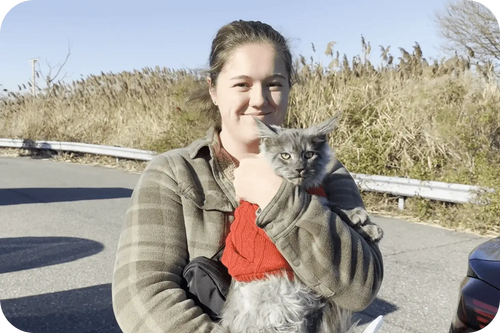
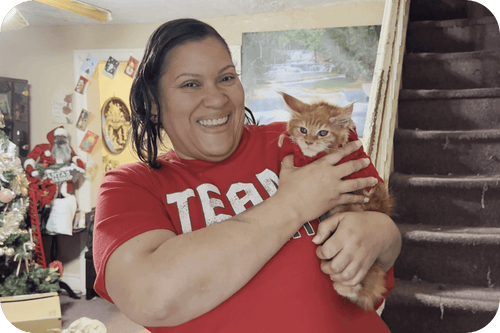
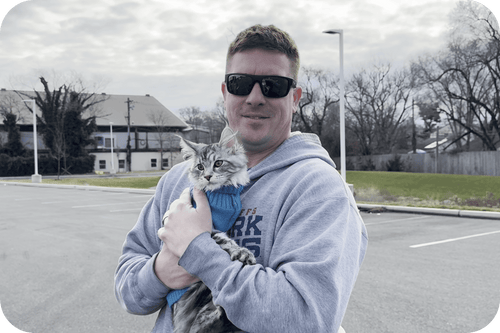

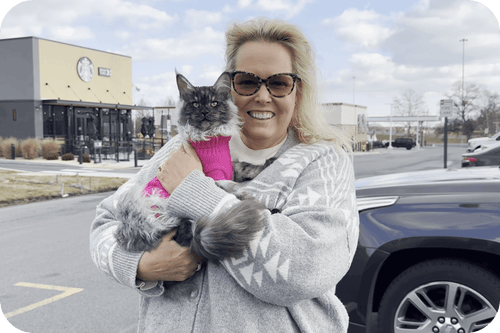

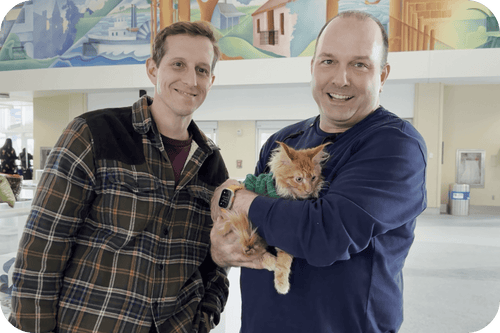


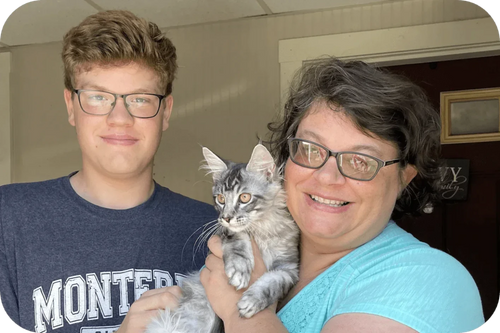
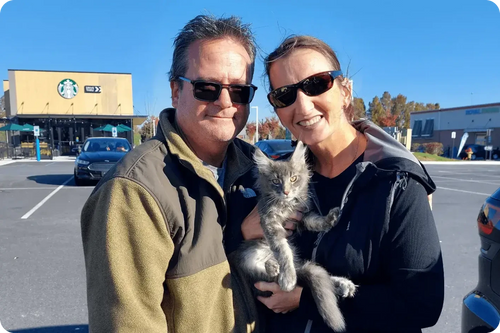



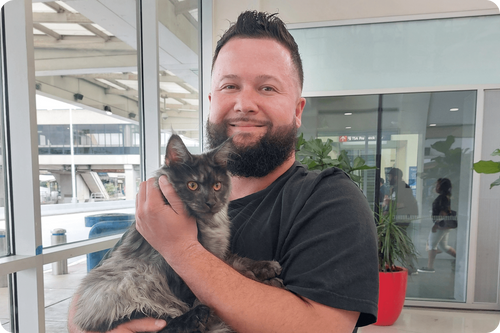











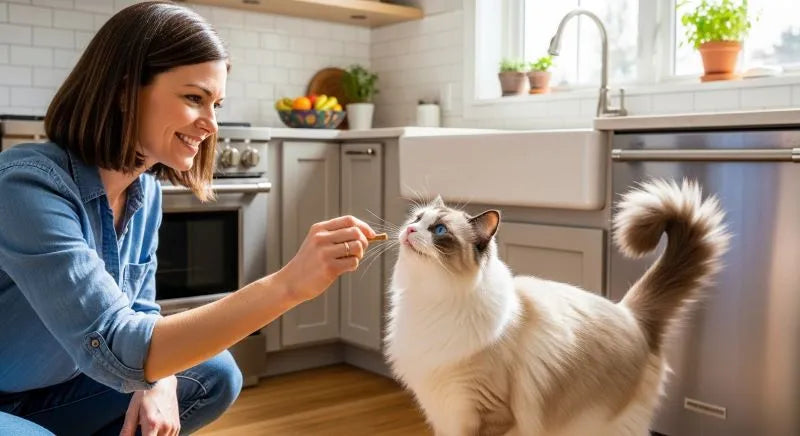

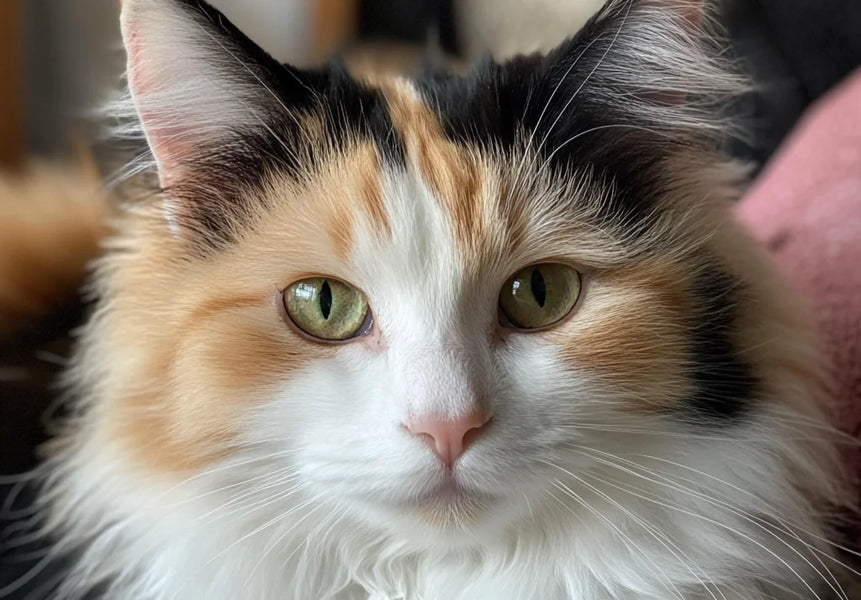

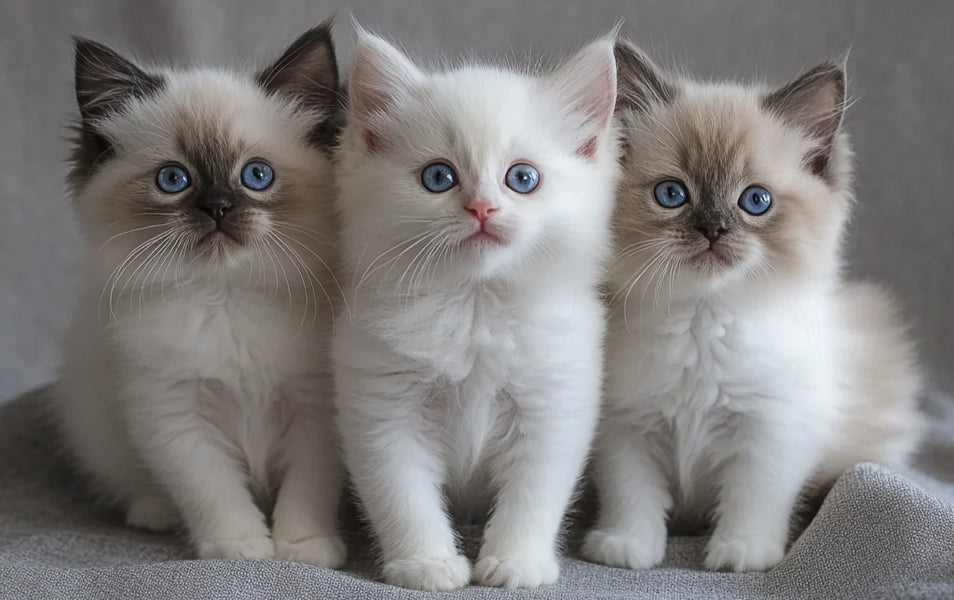




Comments(0)